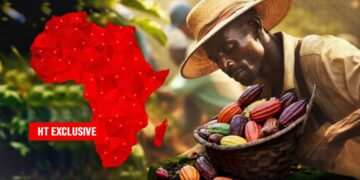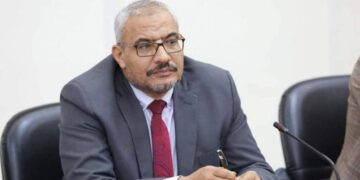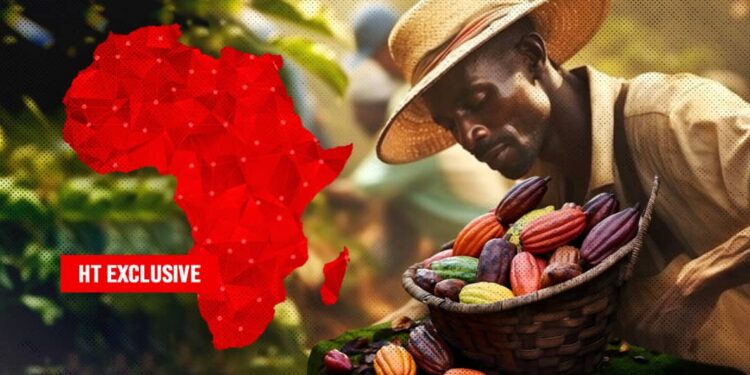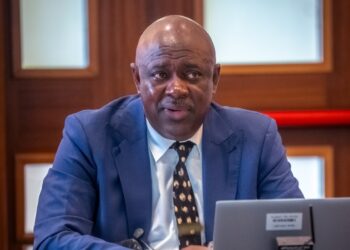By Elie Mutangana, Kigali
Fresh investigative report by Initiative for Community Development and Forest Conservation has revealed that Cocoa beans exported from Ivory Coast to European countries originate from deforested land in neighboring Liberia.
Authors of the investigation add that the companies sourcing Cocoa from West African countries such as Ivory Coast and Ghana are promoting the destruction of forest in neighboring Liberia.
The Ivory coast-based think-tank that conducted the investigation suggested that the European Union law on deforestation urgently needs to be implemented to strengthen supply chain and traceability mechanisms significantly. It was highlighted that the current traceability mechanisms by European countries are flawed and do not comply with the new anti-deforestation regulation published in 2023, thus the need for mechanisms to be replaced by the current national traceability system that are in place in African countries like Ivory Coast.
To resolve the problem and comply with new European regulations, traders in raw material are urged to change their approach given that the current traceability systems that were set up by chocolate companies and are flawed and controlled by them for their own profits.
Demand for cocoa beans is booming around the world. Before these beans can be transformed into silver or gold-leafed chocolates for the pleasure of billions of consumers, they have to pass through a complex market made up of variety of parities acting as intermediaries between, small, poorly paid cocoa farmers and retailers.
However, the main consequences of the situation are the fact that thousands of hectares of forest have been destroyed to make way for cocoa plantations.
Now, the European Union has taken a decisive step with the adoption in June 2023 of the European Union Deforestation Regulation (EUDR) for products linked to deforestation and forest degradation. AS of December 2024, it will be illegal to import and market cocoa beans harvested on plots of land deforested to create plantation.
The regulation presents a unique opportunity to address the historical problems of deforestation in the cocoa sector, which the industry and certification systems have never been able to resolve on a voluntary basis.
According to UN Food and Agriculture Organization, (FAO), Ivory Coast is the world’s largest producer of cocoa, with 75 percent of its production absorbed within Europe as its single privileged consumer. However, for years, cocoa plantations have been developed at the expense of forests, contributing significantly to their destruction.
“The cocoa industry has pledged to end deforestation, but our investigation shows that this is still not happening. EU regulation on deforestation represents a historic opportunity to finally honor the commitment,” reads the part of the immediate press release by IDEF on the report.
Inside Ivorian exodus to Liberia for search of new forest
As the investigation shows, the situation is driving Ivorian growers to migrate to the fertile lands of neighboring Liberia, home to more than half of West Africa’s remaining tropical forests.
In the three Liberian villages that were the focus of the report, residents stated that, with this migration, no fewer than “183 producers have settled in recent years, 60 between December 2023 and January 2024 alone.”
Not only is there new deforestation taking place, there is also a lack of infrastructure in Liberia for growers to export their beans. As a result, once harvested, the cocoa beans are carried back to Ivory Coast on people’s backs.
In Ivory Coast, apart from the fact that the authorities are working to set up a national traceability system, the country’s forestry situation – only 2.9 million hectares, means that there is little risk of major deforestation for cocoa in the coming years.
This is not the case for neighboring countries such as Guinea and Liberia.
Between 1950 and 1960, the cocoa loop was located in the south-east of Ivory Coast. It gradually moved to the west and south-west of the country. But between 1970 and 1980, the cocoa loop was in the central-west region.
This phenomenon, which was also observed in Ghana between 1970 and 1980 is the consequence of the movement of planters in search of new forests. This process corresponds to planters taking into account the ageing of the first plantation, and the drop in yields and income.
According to data from Global Forest Watch (GFW), between 2001 and 2022, Liberia lost 2.2 million hectares of vegetation cover, equivalent to a 23% decrease in vegetation cover since 2000. In 2022 alone, the country had lost 150,000 hectares of natural forest.
It clearly shows that there is an exodus of cocoa producers from Ivory Coast to Liberia.
Field observations highlight the existence of a real exodus phenomenon where cocoa producers from Ivory Coast are increasingly moving to Liberia.
At the public meeting organized by the independent observer mission in the village of Yargaken, the village chief stated that since 2020, his village has welcomed and given forest plots to precisely 48 Ivorian farmers.
For the three target villages alone, the communities give a figure of 183 producers received, including around 60 for the period from December 2023 to January 2024 alone. The majority of growers in the report’s target area also have their plantations in Ivory Coast. This is partly because their families remain in Ivory Coast, and secondly, this allows them “to have financial resources while waiting for the new plantation in Liberia to start producing cocoa pods”.
“Cocoa has developed Côte d’Ivoire. There are roads, hospitals, health centers and even electricity in the most remote villages. That’s why we’re delighted to welcome these people. They are going to help us produce wealth and the government will come and open the road for us because there will be a lot of cocoa here. They don’t look at us because they don’t see any interest in our district. But thanks to cocoa, our district will soon be prosperous,” the village chief told investigators.
He continued: “We have no drinking water because there are no boreholes. The roads are non-existent, even for two-wheelers like motorbikes. Walking can be difficult on certain tracks. If we develop cocoa like in Côte d’Ivoire, we’ll soon have better living conditions”.
The independent observation mission noted the existence of cocoa plantations in Liberia and new clearings of primary forest. In the area covered in the report, witness accounts indicate that the first plantations were established in 2005. But the most tangible observation is that there are new cocoa plantations and new clearings awaiting the planting of cocoa seedlings or nurseries.
The mission identified a total of 36 plantations and 12 newly-cleared plots in the eastern and southern parts of the Yargaken village in Liberia.
Taking concrete actions
The largest direct cause of deforestation in Africa currently is the clearing of forest to feed a growing population through shifting cultivation. Apparently, deforestation and climate change have contributed to the challenge of producing cocoa.
While It is difficult to make cocoa without cutting down trees in a forest, observers warn not to cut down all the trees, although, this is seen as counter-productive for cocoa in the long term.
On WhatsApp chat, the author of the report, Bakary Traore told HT Exclusive that major challenges including traceability was pinned and brought the reason to recommend national stakeholders, in particular, the government of Ivory Coast, Liberia to take up this issue and put in place concrete measure to deal with the situation.
“Ivory Coast has lost much of its primary forest cover as a result of unsustainable agricultural model. Liberia Could learn from this. We have therefore recommended that international partners, in particular the European Union, step up their support for Ivory Coast in setting up a national traceability system, they also open discussions with Liberian government and above all they put in place robust means of control on its territory as part of due diligence in line with the regulation on deforestation”, the texts of Traore replying on questions on WhatsApp read.
In the recent World Cocoa Conference held in Brussels last week, and of which Traore took part in, participants resolved by demanding better living for coco farmers and were delighted by the fact that the theme of the conference was the ‘issue of price’.
“It’s important to see that the words and phrases that we used to use only among NGOs, such as ‘fair price’, ‘a fairer supply chain’, ‘better purchasing practices’, ‘decommoditizing cocoa’, etc., are used by all the other stakeholders, including the cocoa and chocolate industry. And even the question of the market, which until recently was an absolute taboo, is now part of the discussion. This is an important step forward, but words alone, however beautiful, are not enough. We now need to put in place concrete actions. The fine words we hear from all sides must be followed by concrete action on the ground. And that means, as we have said, reviewing cocoa purchasing practices in particular”, Traore texted.
As part of the Voice network, he said that they have published an advocacy paper on the subject to set out their vision of the issue.
At the level of the Ivorian platform for sustainable cocoa, it is believed that it will not be enough to wait for the goodwill of the industry, yet public decision-makers, particularly in consumer countries, need to step in and regulate. With regards, legislation such as the deforestation regulation and the European Union’s due diligence directive should favorably be enacted at all levels.



































